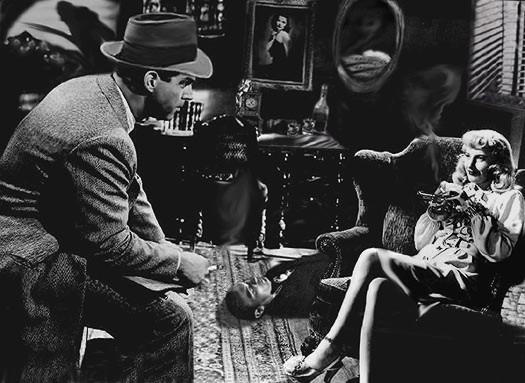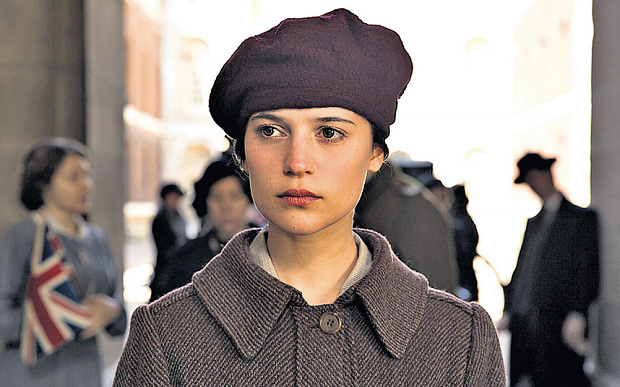In the spirit of Joanne Walsh’s wonderful #Readwomen campaign devised in response to the distressing Vida Count tallying how (un)often women writers are published and reviewed, I’ve challenged myself: this year for every film I watch written or directed by a man I must watch another directed or written by a woman. Take the challenge with me and 2015 is sure to be a year of enlightenment.
Birdman or: The Unexpected Virtue of Ignorance--Dir: Alejandro González Iñárritu. Screenplay: Alejandro González Iñárritu, Nicolás Giacobone, Alexander Dinelaris, Armando Bo
Mostly excellent version of the old story of the ageing, washed-up movie star in which the actor pretty much plays himself. The premise--an ex superhero Birdman tries to redeem and relaunch his career by adapting and starring in a theater production of Raymond Carver stories is pretty great. But the screenplay is uneven, ranging from "profound" to shmaltz to genuinely brilliant. Michael Keaton as the Birdman is wonderful (should win Best Actor Oscar) but Edward Norton steals the show, indeed, as he is meant to, but this is an all out heist (definitely should win Best Supporting Actor Oscar). The sparring between the two comrades/rivals is the most compelling coupling in the film and ultimately drives it, even if the father/daughter (Emma Stone, those eyes!) conflict is the ostensible leading relationship. Supporting roles by Naomi Watts and Andrea Riseborough are admirable, but Lindsay Duncan's cameo as the film critic is acid sharp. Although I loved the magical realism of this Hollywood insider film, I found David Cronenberg's Maps to the Stars the more challenging and fantastical. And Sunset Boulevard continues to reign supreme.
Testament of Youth--Dir. James Kent. Based on the book by Vera Brittain. Screenplay: Juliette Towhidi
I loved this book when I was a girl and for a long time I wanted to be like Vera Brittain. But she soon became too worthy and I wanted to be a bad boy like J.D. Salinger or Thomas Pynchon or Kurt Vonnegut or Jack Kerouac. Our female role models, alas, tend to be either entirely too worthy or entirely worthless. All the possibilities in between we don't get enough of. But Vera, in her way, was a bad girl, rebelling against patriarchal constraints by getting herself an education and ultimately becoming an anti-war activist. This film, as these made-in-England period pieces will be, does smack of "worthy" but overcomes or incorporates that aspect well enough to become a genuinely compelling and surprising movie. The direction, but most especially the script, rigorously tries to avoid the pitfalls of sentimentality or predictability (doesn't completely succeed) to render Vera a fully drawn character (succeeds), both courageous and flawed, if, ultimately, too worthy to be quite real. In a way, Alicia Vikander who plays Vera doesn't help matters because of how much of a wonder she is too watch. She does very much bring Vera entirely to life, indeed to larger than life. Vikander has "movie star" written all over her. Kit Harrington as Vera's love interest impressively manages to smoulder in an entirely different way than he does on Game of Thrones, and without the use of his unruly curls as a prop. Dominic West as Vera's father overdoes the tough patriarch with a heart of gold and Emily Watson is entirely wasted as her feckless mother.
Birdman or: The Unexpected Virtue of Ignorance--Dir: Alejandro González Iñárritu. Screenplay: Alejandro González Iñárritu, Nicolás Giacobone, Alexander Dinelaris, Armando Bo
Mostly excellent version of the old story of the ageing, washed-up movie star in which the actor pretty much plays himself. The premise--an ex superhero Birdman tries to redeem and relaunch his career by adapting and starring in a theater production of Raymond Carver stories is pretty great. But the screenplay is uneven, ranging from "profound" to shmaltz to genuinely brilliant. Michael Keaton as the Birdman is wonderful (should win Best Actor Oscar) but Edward Norton steals the show, indeed, as he is meant to, but this is an all out heist (definitely should win Best Supporting Actor Oscar). The sparring between the two comrades/rivals is the most compelling coupling in the film and ultimately drives it, even if the father/daughter (Emma Stone, those eyes!) conflict is the ostensible leading relationship. Supporting roles by Naomi Watts and Andrea Riseborough are admirable, but Lindsay Duncan's cameo as the film critic is acid sharp. Although I loved the magical realism of this Hollywood insider film, I found David Cronenberg's Maps to the Stars the more challenging and fantastical. And Sunset Boulevard continues to reign supreme.
Testament of Youth--Dir. James Kent. Based on the book by Vera Brittain. Screenplay: Juliette Towhidi
I loved this book when I was a girl and for a long time I wanted to be like Vera Brittain. But she soon became too worthy and I wanted to be a bad boy like J.D. Salinger or Thomas Pynchon or Kurt Vonnegut or Jack Kerouac. Our female role models, alas, tend to be either entirely too worthy or entirely worthless. All the possibilities in between we don't get enough of. But Vera, in her way, was a bad girl, rebelling against patriarchal constraints by getting herself an education and ultimately becoming an anti-war activist. This film, as these made-in-England period pieces will be, does smack of "worthy" but overcomes or incorporates that aspect well enough to become a genuinely compelling and surprising movie. The direction, but most especially the script, rigorously tries to avoid the pitfalls of sentimentality or predictability (doesn't completely succeed) to render Vera a fully drawn character (succeeds), both courageous and flawed, if, ultimately, too worthy to be quite real. In a way, Alicia Vikander who plays Vera doesn't help matters because of how much of a wonder she is too watch. She does very much bring Vera entirely to life, indeed to larger than life. Vikander has "movie star" written all over her. Kit Harrington as Vera's love interest impressively manages to smoulder in an entirely different way than he does on Game of Thrones, and without the use of his unruly curls as a prop. Dominic West as Vera's father overdoes the tough patriarch with a heart of gold and Emily Watson is entirely wasted as her feckless mother.


















